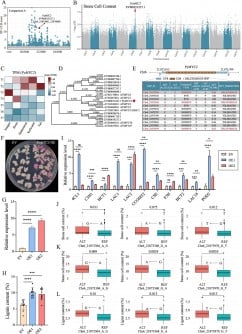A new study from the University of Edinburgh has identified a critical bacterial repair system that could lead to enhanced treatments for antibiotic-resistant infections. Published in Nature Communications on November 11, 2025, this research highlights the urgent need to address antimicrobial resistance (AMR), a growing global health threat.
Researchers discovered that a specific repair mechanism, known as Rtc, within certain bacteria plays a key role in their survival against commonly used antibiotics. These antibiotics typically function by interfering with the production of proteins essential for bacterial growth. The Rtc system enables bacteria to repair damaged RNA, which is crucial for translating genetic information into functional proteins, thus allowing them to continue thriving even when faced with antibiotic treatment.
The study revealed that bacterial responses to antibiotics can vary significantly from one cell to another. This variability complicates treatment strategies, as some bacteria exhibit stronger resistance against antibiotics than others. The research team, led by Dr. Andrea Weisse from the university’s Schools of Biological Sciences and Informatics, utilized advanced computer models alongside laboratory experiments involving E. coli, a well-known antibiotic-resistant bacterium.
Dr. Weisse emphasized the need for innovative approaches to combat these resilient bacteria. “Bacteria are clever little things. They have been learning how to dodge our antibiotics, and they are getting better at it all the time,” she stated. “If we don’t find new drugs—or new tricks to outsmart them—we are in trouble.”
The findings suggest that by focusing on the key components of the Rtc repair system, researchers could develop more effective treatments, potentially improving the efficacy of existing antibiotics. This work not only sheds light on the complex survival strategies employed by bacteria but also opens new pathways for addressing the pressing challenge of AMR.
The implications of this research extend beyond the lab, highlighting the need for urgent action in the fight against resistant infections. With AMR being recognized as one of the most significant health threats globally, the discovery of new drug targets is a promising step toward improving patient outcomes and ensuring effective treatments for bacterial infections.
In conclusion, this study represents a significant advancement in understanding bacterial resistance mechanisms. As researchers continue to explore the intricacies of bacterial survival, the hope is to devise smarter strategies that can outmaneuver these evolving pathogens and enhance the effectiveness of antibiotic therapies.







